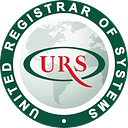What is Drone Testing Laboratory?
A Drone Testing Laboratory is a facility specifically designed for testing and evaluating drones (unmanned aerial vehicles) and their associated systems. These laboratories provide a controlled environment where researchers, engineers, and developers can assess various aspects of drone performance, functionality, and safety.
Drone testing laboratories typically offer a range of capabilities and equipment to support comprehensive testing procedures. These may include:
1. Flight Testing: Dedicated areas or outdoor spaces where drones can be flown to evaluate their flight characteristics, stability, maneuverability, and response to different conditions.
2. Sensor Testing: Facilities equipped with specialized equipment to assess the performance and accuracy of various sensors commonly used in drones, such as cameras, LiDAR (Light Detection and Ranging), thermal cameras, and GPS (Global Positioning System) modules.
3. Battery and Power Systems Testing: Laboratories with equipment for testing the endurance, charging efficiency, and performance of drone batteries and power systems, including their ability to supply consistent power during flight.
4. Radio Frequency (RF) Testing: Controlled environments for evaluating the effectiveness of drone communication systems, including wireless transmission, signal range, interference, and reliability.
5. Payload Testing: Facilities to assess the functionality and performance of payload systems, such as cameras, sensors, or delivery mechanisms, carried by drones.
6. Environmental Testing: Chambers or simulated environments that allow researchers to test drones in specific conditions, such as extreme temperatures, high altitudes, or adverse weather conditions.
7. Collision Testing: Dedicated areas with safety measures and equipment to assess the crashworthiness and impact resistance of drones, including structural integrity and the effectiveness of safety mechanisms.
8. Software and Firmware Testing: Computer systems and software development environments for testing drone control algorithms, navigation systems, and software/firmware updates.
9. Regulatory Compliance Testing: Laboratories equipped to conduct tests and evaluations to ensure drones comply with relevant regulations and standards, including safety, emissions, and performance requirements.
Pros and Cons of Drone Testing Laboratory
Pros of Drone Testing Laboratories:
1. Controlled Environment: Drone testing laboratories provide a controlled environment where various parameters can be monitored and manipulated during testing, allowing for precise evaluations and measurements.
2. Safety: Laboratories prioritize safety protocols and measures to mitigate risks during testing, ensuring the well-being of personnel and minimizing the potential for accidents or damage to equipment.
3. Compliance with Regulations: Testing laboratories help ensure drones comply with regulatory standards and requirements, ensuring their safe and legal operation in different environments.
4. Performance Optimization: Through rigorous testing and evaluation, laboratories can identify areas for improvement in drone design, performance, and functionality. This optimization process leads to enhanced performance and reliability of drones.
Cons of Drone Testing Laboratories:
1. Cost: Establishing and maintaining a drone testing laboratory can be expensive, requiring substantial investments in infrastructure, specialized equipment, and skilled personnel.
